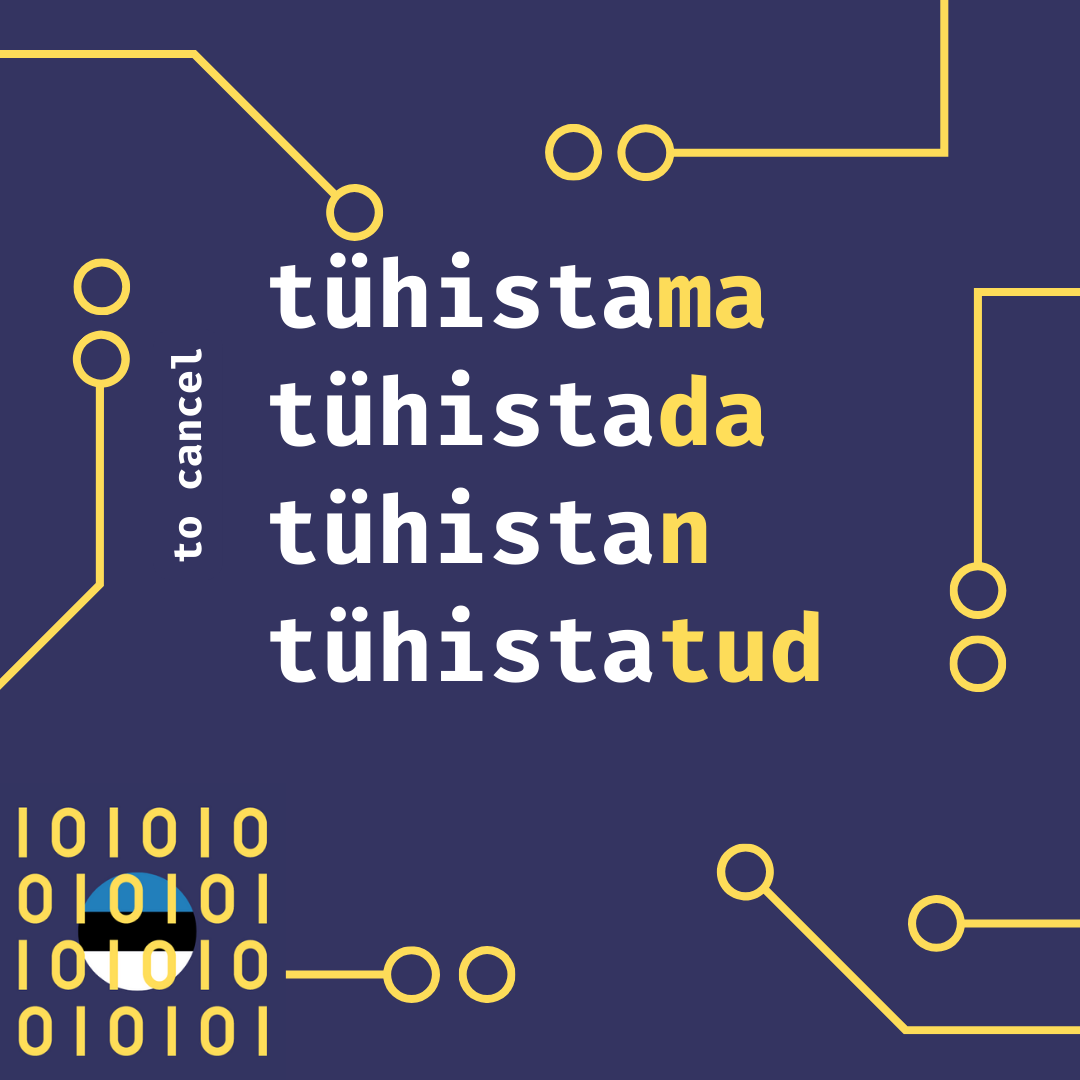Vocab: tühistama
to cancel
to cancel, to void
Building blocks
tühi- empty
-sta- causative (“make something be empty”)
-ma - infinitive ending
The word “tühi” - empty, void appears to actually come from a Baltic, and thus Indo-European, root.
How to use it
What you cancel is in the Partitive case (third base form) if you are in the process of canceling it, and the Genitive (Singular) or Nominative (Plural) otherwise (i.e. you cancel something and afterward it is actually canceled).
Things to cancel commonly include:
tellimus, -e, -t, -i - “subscription”
leping, -u, -ut, -uid - “contract”
broneering, -u, -ut, -uid - “reservation”
Examples
Tühistasin broneeringu
Literally: “I canceled the booking”
Tühistasin - Verb - 1P Sg Ind Past, "I canceled"
broneeringu - Noun - Gen Sg, "reservation"Ma ei taha üürilepingut tühistada
Literally: “I don’t want to rental contract cancel”
Idiomatically: “I don’t want to cancel the rental contract”
Ma - Pronoun - Nom Sg,"I"
ei taha - Verb - Negative Present, "don't want"
üürilepingut - Noun - Part Sg, "rental contract"
tühistada - Verb - da-Infinitive, "to cancel"

